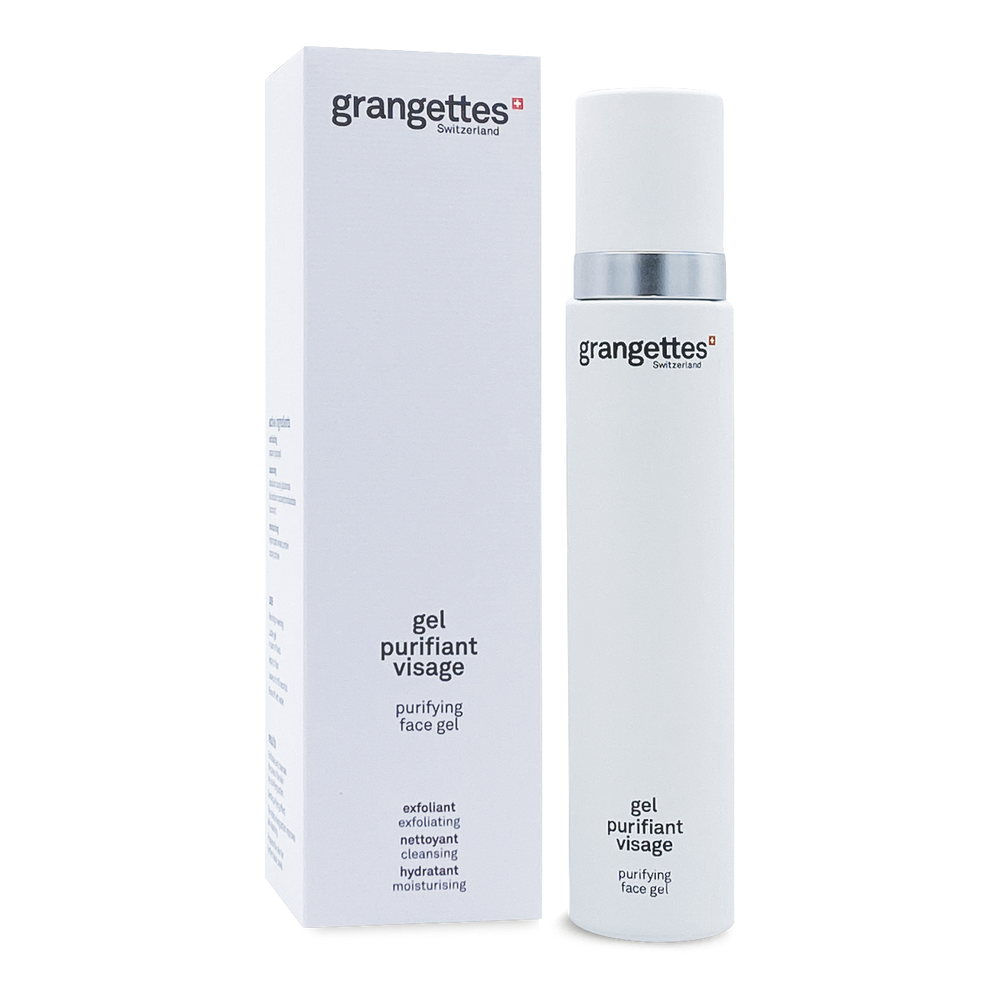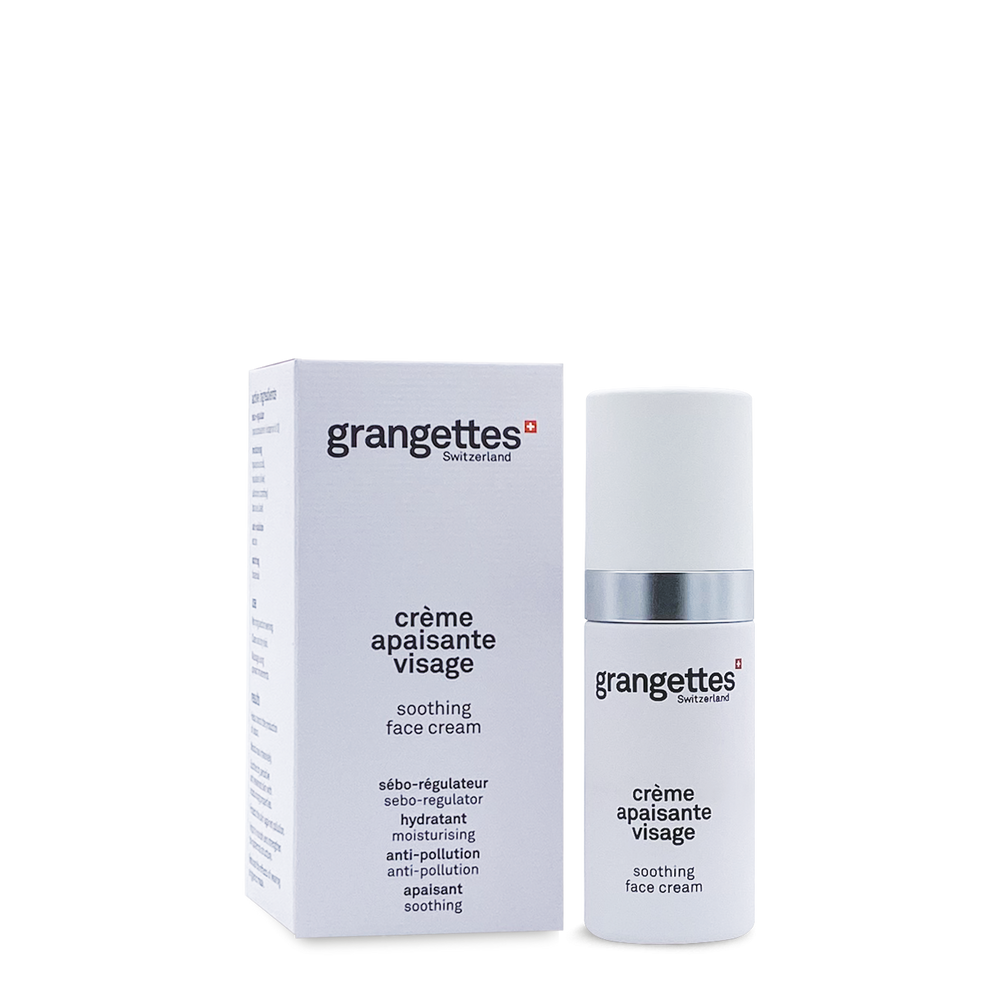Why do we get pimples on our cheeks?
Pimples on the cheeks can be caused by different factors...
A pore blockage
The sebaceous glands produce sebum, a fatty substance intended to protect the skin. If this sebum accumulates with dead cells or impurities (pollution, makeup, dust...), the pores become clogged, promoting the appearance of comedones, blackheads or inflamed pimples.
Hormonal acne on the cheeks
In both teenagers and adults (especially women), a hormonal imbalance can stimulate sebum production and cause skin eruptions on the cheeks. Here's why...
Cheek acne is a common skin condition related to inflammation of the hair follicles. This skin disease originates in the pilosebaceous follicles, which are located at the base of each hair. Each follicle contains a sebaceous gland, whose role is to secrete sebum, the oily substance that protects the skin. However, at the slightest imbalance, sebum production can become excessive, causing the appearance of skin imperfections that vary in severity depending on your skin type.
Pimples appear when sebum and dead skin cells clog the pores. This blockage promotes the proliferation of bacteria, causing pimples, blackheads, whiteheads, and cysts. It is often worsened by hormonal factors, stress, and certain lifestyle habits. Contact of the hands or phone on the cheeks can also increase inflammation.
In many cases, acne on the cheeks is associated with hyperséborrhée (excess sebum). It can leave scars if not properly treated. Therefore, dermatological follow-up is recommended to effectively control acne on the cheeks. The good news is that understanding its causes allows you to adopt a suitable skincare routine and limit flare-ups!
The use of comedogenic products
Some cosmetics (foundations, creams, powders) contain ingredients that clog pores, promoting the appearance of pimples.
Contact with contaminated surfaces
Cheeks are often in contact with phones, pillowcases, masks, hands... which can harbor bacteria. These repeated contacts irritate the skin and promote acne outbreaks.
Nutrition and lifestyle hygiene
A diet rich in sugar, processed foods, or dairy products can promote skin breakouts. Stress, lack of sleep, or smoking are also aggravating factors for acne-prone skin.
The importance of finding your own approach
There is no single universal solution to treat acne on the cheeks, because every skin is different. For some people, it is mainly hormonal in origin, while for others, it is linked to stress, diet, or repeated contact with objects like the phone.
That's why an effective treatment for one person won't necessarily work for another. The approach must be personalized: you need to observe your skin to understand your own triggers. Eliminating acne on the cheeks requires patience and sometimes several attempts. In any case, it's important to avoid comparing your situation to others, as every skin has its own history and specific needs.
It's up to you to find your individual path to skin balance! But to support you, focus on the most suitable cosmetic products for cheek pimples.
Our tips for eliminating pimples on the cheeks
Adopt a suitable skincare routine
Cleanse, treat, and hydrate are the three pillars of an effective routine:
-
Gentle cleansing morning and evening: use a soap-free, pH-neutral cleanser to remove impurities without irritating the skin. Choose a purifying face gel containing cleansing agents like coconut, and moisturizing agents like hydrolyzed wheat protein, which are gentle ingredients that prepare your skin for your treatments;
-
A gentle exfoliation 1 to 2 times a week: exfoliation removes dead cells and unclogs pores. Avoid harsh grain scrubs; prefer gentle exfoliants. Enzymatic scrubs are ideal: they are gentle, quick, and effective scrubs. They are applied like a mask on the face. It is the enzymes, active molecules of botanical origin, that react upon contact with the skin to eliminate impurities and dead cells. Furthermore, the Grangettes purifying gel, with its papain, offers a delicate and effective exfoliation to reveal your face's radiance;
- Regular price
- CHF 36.00
- Regular price
- Sale price
- CHF 36.00
- Unit price
- per
-
Non-comedogenic hydration: a oily skin or acne-prone skin needs hydration. Opt for non-comedogenic cosmetics, light creams, based on hyaluronic acid, which do not clog pores. The Grangettes soothing face cream is designed to meet the specific needs of the skin, such as sebum regulation, redness, dryness, and acne;
- Regular price
- CHF 35.00
- Regular price
- Sale price
- CHF 35.00
- Unit price
- per
-
Targeted anti-pimple creams: locally use treatments containing niacinamide, bisabolol, or ectoine to reduce skin inflammations.
Regularly clean objects that come into contact with the skin
The bacteria present on certain objects promote the appearance of pimples on the cheeks. Clean your mobile phone daily with an antibacterial wipe, and avoid touching your face, especially without washing your hands.
Also change your pillowcase about twice a week to maintain perfect hygiene and sleep on perfectly clean fabric!
Improve your diet to avoid acne on the cheeks
A healthy diet can have a beneficial effect on the condition of the skin:
-
Reduce fast sugars (candies, cakes, sodas), which can cause insulin spikes that promote sebum production;
-
Limit dairy products, especially cow's milk, which is often associated with acne flare-ups;
-
Increase foods rich in zinc, omega-3, antioxidants, and fiber: fatty fish, green vegetables, red fruits, nuts, seeds… ;
-
Stay hydrated: drinking 1.5 to 2 liters of water per day helps eliminate toxins and maintain healthy skin.
Consult a dermatologist
If pimples on the cheeks persist despite good hygiene and an appropriate routine, consult a professional. The dermatologist can prescribe creams based on retinoids, antibiotics, or even an oral treatment (such as zinc, or a suitable contraceptive pill).
In addition, chemical peels may be recommended. They help to cleanse the superficial layers of the skin and reduce imperfections. LED or laser light also reduces inflammation and kills the bacteria responsible for acne.

Some natural remedies for pimples on the cheeks
If you prefer a gentle or complementary approach, some natural remedies can help you. Pure aloe vera gel, for example, is anti-inflammatory and healing. In this sense, it soothes redness and helps regulate sebum.
Tea tree essential oil, known for its antibacterial properties, can be applied locally (diluted in a vegetable oil) on pimples to speed up their disappearance.
Green clay can be used as a mask. It purifies the skin by absorbing excess sebum and impurities. Use it once a week to enjoy its effects!
Finally, Manuka honey is a natural antibacterial, which can be used as a mask on the cheeks to soothe inflammations.
Warning: even natural, these products can cause allergic reactions. It is therefore recommended to perform a preliminary test on a small area of skin.

How to manage scars after pimples?
Pimples on the cheeks, especially when touched, can leave marks: pigmentation spots, indentations, redness. To reduce their appearance, several tips:
-
Never pop a pimple: it worsens inflammation and the risk of scarring;
-
Apply SPF 50 sun protection every day to prevent hyperpigmentation;
-
Use gentle depigmenting treatments (based on niacinamide, or vitamin C).
-
Perform targeted dermatological treatments for pronounced scars: peeling, laser, microneedling...






